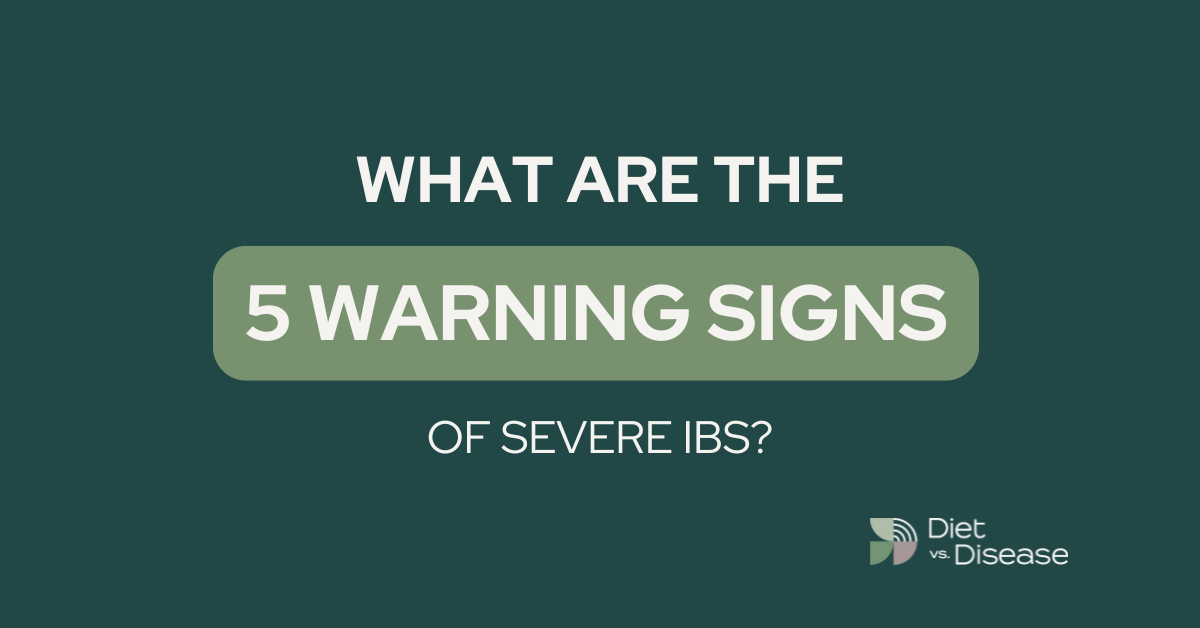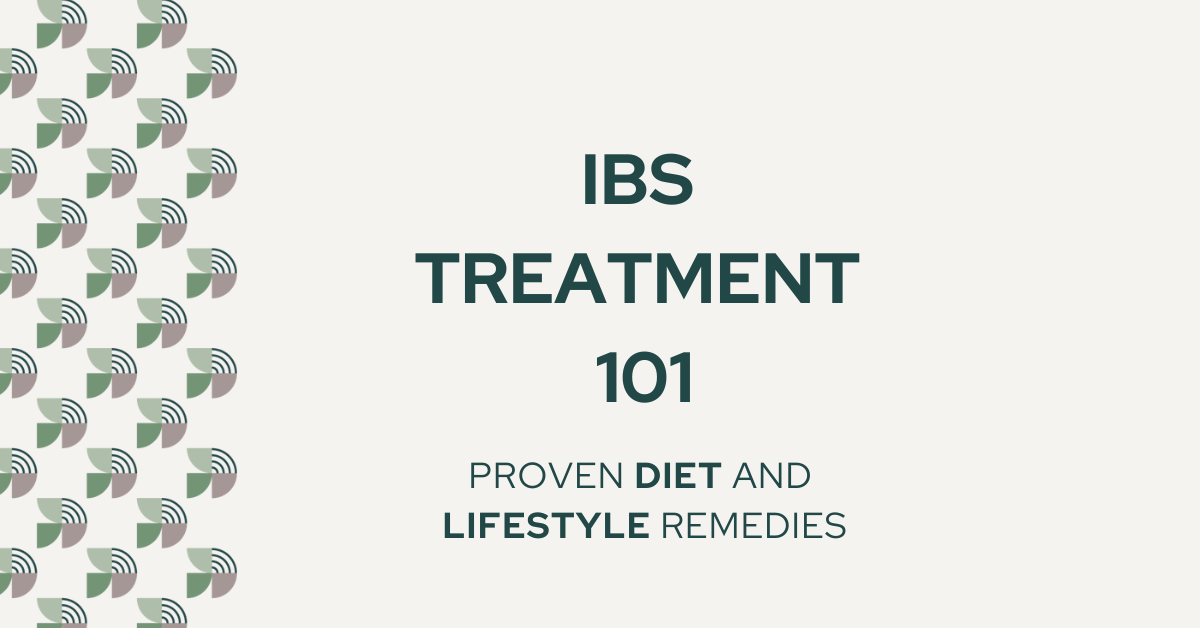What Is Irritable Bowel Syndrome (IBS)?
IBS is a common chronic gastrointestinal condition that affects up to 1 in 7 people worldwide.
It is characterised by recurrent abdominal symptoms including:
- Bloating
- Abdominal pain
- Abdominal cramping
- Excessive wind
- Diarrhoea
- Constipation
- Altered bowel habits.
More Information On IBS
How To “Cure” IBS: The DIY Guide To Do It Naturally
IBS Treatment 101: Proven Diet and Lifestyle Remedies
Best Probiotics For Irritable Bowel Syndrome (IBS): Explained in Plain English
8 IBS Symptoms You Need To Know About
The Beginner’s Guide to SIBO: Antibiotics and Diet Recommendations
IBS Medication: A Sales-Free Look At What Works
SIBO and IBS: Cutting-Edge Findings with Gastroenterologist Dr. William Chey
Your Guide To Peppermint Oil: Proven Uses, Health Benefits, and Who MUST Avoid It
Treating IBS With A Low FODMAP Diet
A relatively new medical diet, called the low FODMAP diet, has been proven to reduce the symptoms of Irritable Bowel Syndrome in up to 75% of sufferers (1).
The diet restricts poorly absorbed sugars, known as FODMAPs, found in many healthy foods including some fruit and vegetables, grains and dairy products.
The restriction of these sugars in the diet reduces a process called fermentation from occurring.
Fermentation is the process where the healthy gut bacteria that live in our large intestines break down and ‘feed’ off the FODMAPs.
Fermentation actually has multiple benefits important to general health, however, in people who are sensitive, it is this exact same process that triggers undesirable gut symptoms.
Fortunately, it is unlikely that all FODMAPs will trigger these symptoms in sensitive people, so there is a second part to the diet where individual FODMAP groups are re-introduced as a challenge to determine the individual’s personal tolerance level.
The end result of the diet is one where there is a balance of FODMAP restriction and FODMAP re-introduction personalised to the individual’s own tolerance level.
This personalised diet keeps gut symptoms to a minimum, while also supporting gut health and maintaining a variety of healthy foods in their diet.
All articles about Irritable Bowel Syndrome (IBS)
What Are The 5 Warning Signs Of Severe IBS?
In this article we’ll look at the 5 main warning signs and symptoms of IBS, because a lot of patients get left on their own here by the doctor and are not sure if they have IBS or what to do.
In fact, can you guess what percentage of people these days are believed to have IBS, both globally but then also specifically in western countries, like the US, Canada, UK and Australia?
[Discover More…]How To “Cure” IBS: The DIY Guide To Do It Naturally
Irritable Bowel Syndrome (IBS) is a common condition that is characterized by ongoing digestive symptoms.
It can greatly lower your quality of life, and in severe cases, can even prevent sufferers from leaving their home.
This article looks at the proven natural ways to get on top of your IBS and reduce your symptoms.
[Discover More…]SIBO and IBS: Cutting-Edge Findings with Gastroenterologist Dr. William Chey
There’s a lot of confusing information available on managing small intestinal bacterial overgrowth (SIBO).
Even gastrointestinal experts can’t seem to agree on the best way to approach their diagnoses and treatment.
To update myself with the latest research in this area, I spoke with Dr. William Chey, a leading gastroenterologist researcher at the University of Michigan and world-renowned authority on food intolerance.
I asked Dr. Chey about how he diagnoses SIBO, his best recommended treatment and whether or not he thinks the low-FODMAP diet is effective.
His answers have been lightly edited for clarity.
[Discover More…]Your Guide To Peppermint Oil: Proven Uses, Health Benefits, and Who MUST Avoid It
[Last updated 14th August, 2018]
The use of peppermint can be traced back several thousand years.
The ancient Egyptians, Romans and other civilizations reportedly used peppermint for its pain-relieving and anti-bacterial properties.
These days peppermint essential oil and capsules are used for a variety of health concerns, particularly digestive issues and headaches.
This article looks at the main uses of peppermint oil and which health claims have scientific evidence behind them.
[Discover More…]IBS Treatment 101: Proven Diet and Lifestyle Remedies
Irritable Bowel Syndrome (IBS) is a gastrointestinal disorder characterised by recurrent digestive stress.
In addition to painful physical symptoms, it can cause serious stress and anxiety if left unmanaged.
This article looks at the scientifically-proven diet and lifestyle changes for IBS treatment.
[Discover More…]Best Probiotics For Irritable Bowel Syndrome (IBS): Explained in Plain English
Irritable bowel syndrome (IBS) is gastrointestinal disorder that causes many digestive problems.
Probiotics are recognized as a new treatment option, but it’s a topic that is clouded by a lot of confusion and scientific jargon.
This is a review of what the best probiotics for IBS actually are, explained in a way you can understand.
[Discover More…]8 IBS Symptoms You Need To Know About
Do certain foods give you embarrassing digestive trouble?
Do you race to the toilet multiple times a day, or go days without a bowel movement?
This article examines the most common symptoms of Irritable Bowel Syndrome (IBS) and what to do next.
[Discover More…]The Beginner’s Guide to SIBO: Antibiotics and Diet Recommendations
A healthy and diverse gut bacteria is important for health.
However, an overgrowth of this bacteria in the small intestine – known as SIBO – can cause serious problems.
This article takes a detailed look at SIBO and what dietary changes are scientifically shown to help.
[Discover More…]












